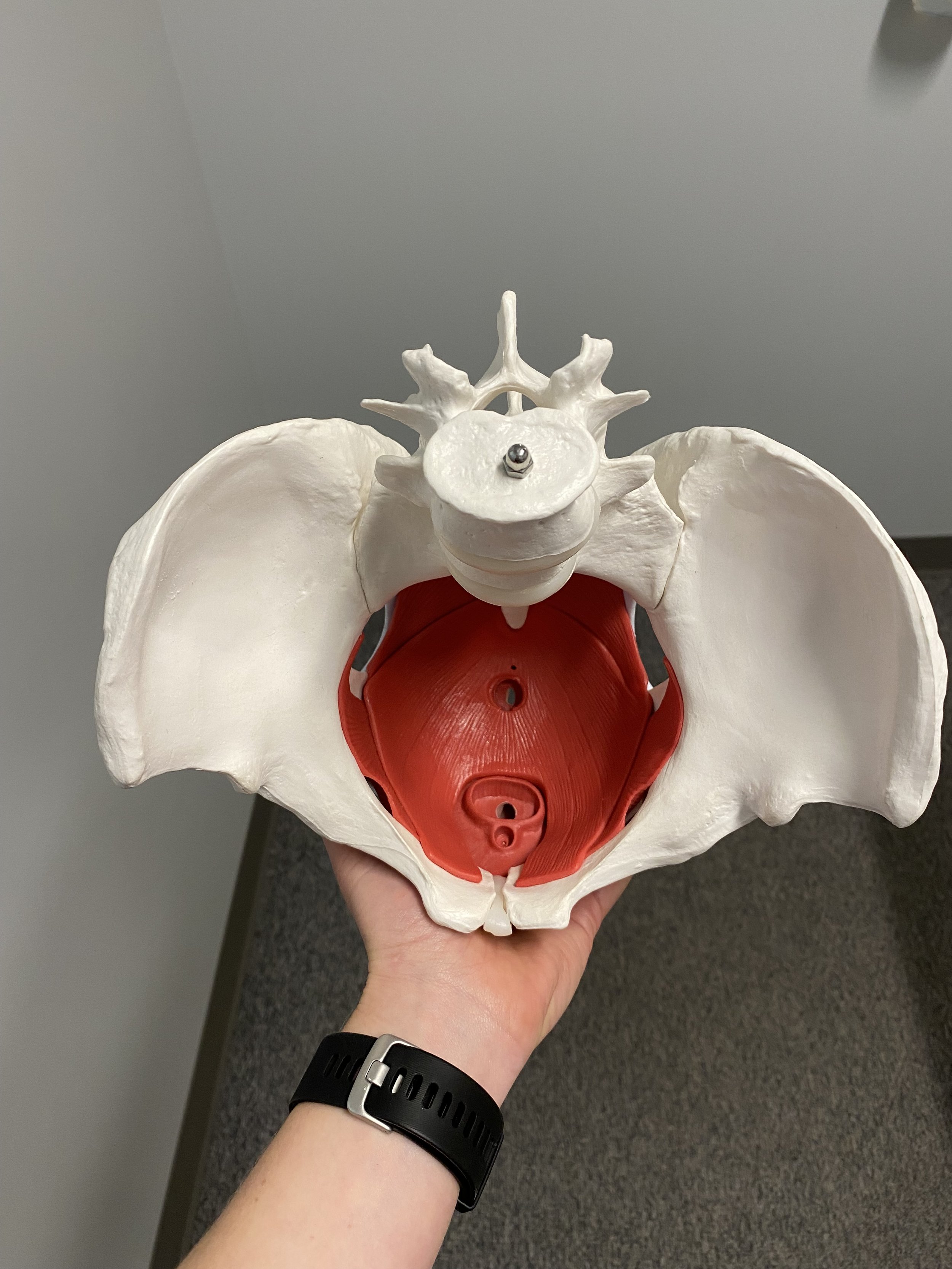The speciality area of physical therapy, pelvic health, has really increased in popularity and demand in the last decade and with that, the area has grown and evolved in what it treats and how. Pelvic health physical therapy is so much more than just Kegel’s! Along with the evolution of pelvic health physical therapy, comes a variety of treatment styles from practicing therapists. Unfortunately, like most things in the medical world, not all pelvic physical therapists are created equal. Here are the main things to look for to ensure you see a great pelvic physical therapist.
1. They Have Enough Time- 60 minute appointments
Any pelvic dysfunction requires more attention and time in appointments than simple orthopedic musculoskeletal issues. This is because pelvic floor dysfunction involves multiple body systems, multiple body regions, longer reviews of medical history, mental and emotional components to unpack, and more logistical time (think undressing and dressing time) to complete an internal objective assessment. A ‘classic’ physical therapy environment that only allotts 30-45 minutes for pelvic health evaluations and treatments is simply not enough time to thoroughly address a pelvic health concern. To find a pelvic physical therapist that provides 60 minute appointment times, you will often have to look at out of network/cash based clinics that do not accept insurance– yes in the world of pelvic health it is definitely worth going to an out of network/cash based clinic.
2. They Perform Internal, Vaginal and/or Rectal, Evaluations and Treatments
If you have a pelvic dysfunction, thoroughly assessing the pelvic floor is integral in identifying the drivers of your dysfunction. Considerations and alternatives are of course made for patients that are not comfortable with any internal assessment or treatment at any time. However, if a pelvic physical therapist does not even propose a vaginal exam or rectal exam, find a new physical therapist. Pelvic physical therapists are among a small number of medical providers that can perform internal assessments and treatments and that is the value in seeing a pelvic physical therapist in the first place.
3. They Look Outside The Pelvis
No pelvic floor dysfunction is isolated to just the pelvic region. A pelvic physical therapist should be evaluating your pelvic floor’s contribution and function within the intricate whole body system. A pelvic physical therapist should be evaluating your lumbar region, your abdomen, your hips, or even further distant regions like your feet, knees, and thoracic spine. Any region of the body could be a driver in pelvic dysfunction and should be addressed.
4. They Have a Gym and Weights in the Clinic
Any pelvic floor dysfunction will need, at some point in the course of care, more than simply passive treatment. We are humans that move and function in so many more ways than just on a table and therefore need to get off the table to address dysfunctions. Even pelvic pain that some may think requires only the release of tight pelvic floor musculature, in reality could be improved by strengthening other surrounding musculature or modifications with lifting mechanics, etc.
5. They Aim to Get You Independent With Your Treatment
Any physical therapist and pelvic health physical therapists included, should teach you how to become independent in the long term treatment of your concern. While there are cases of long term check-ins, you should never feel that you rely on frequent and continual physical therapy to alleviate your dysfunction. A great pelvic health therapist will teach you a variety of independent treatments so that you need them less, from exercises to self internal releases to stress management techniques to nutrition education to bladder and bowel techniques and more.
6. They Look at More than Just the Musculoskeletal System
A great pelvic physical therapist should have an in depth knowledge of other body systems that influence the pelvic floor and pelvic dysfunction. This includes knowledge on hormones and their role in pelvic floor function during various stages of your life, the gastrointestinal system, the role of mental health on physical function, knowledge on medications and their effects, and knowledge on nutrition and supplement use. Pelvic function is influenced by so many systems and factors which all must be taken into consideration.
We only have great pelvic health physical therapists at MEND. If you have been to pelvic physical therapy in the past and feel you were missing any of the above factors, schedule an appointment with our pelvic floor physical therapy experts to see the difference.

